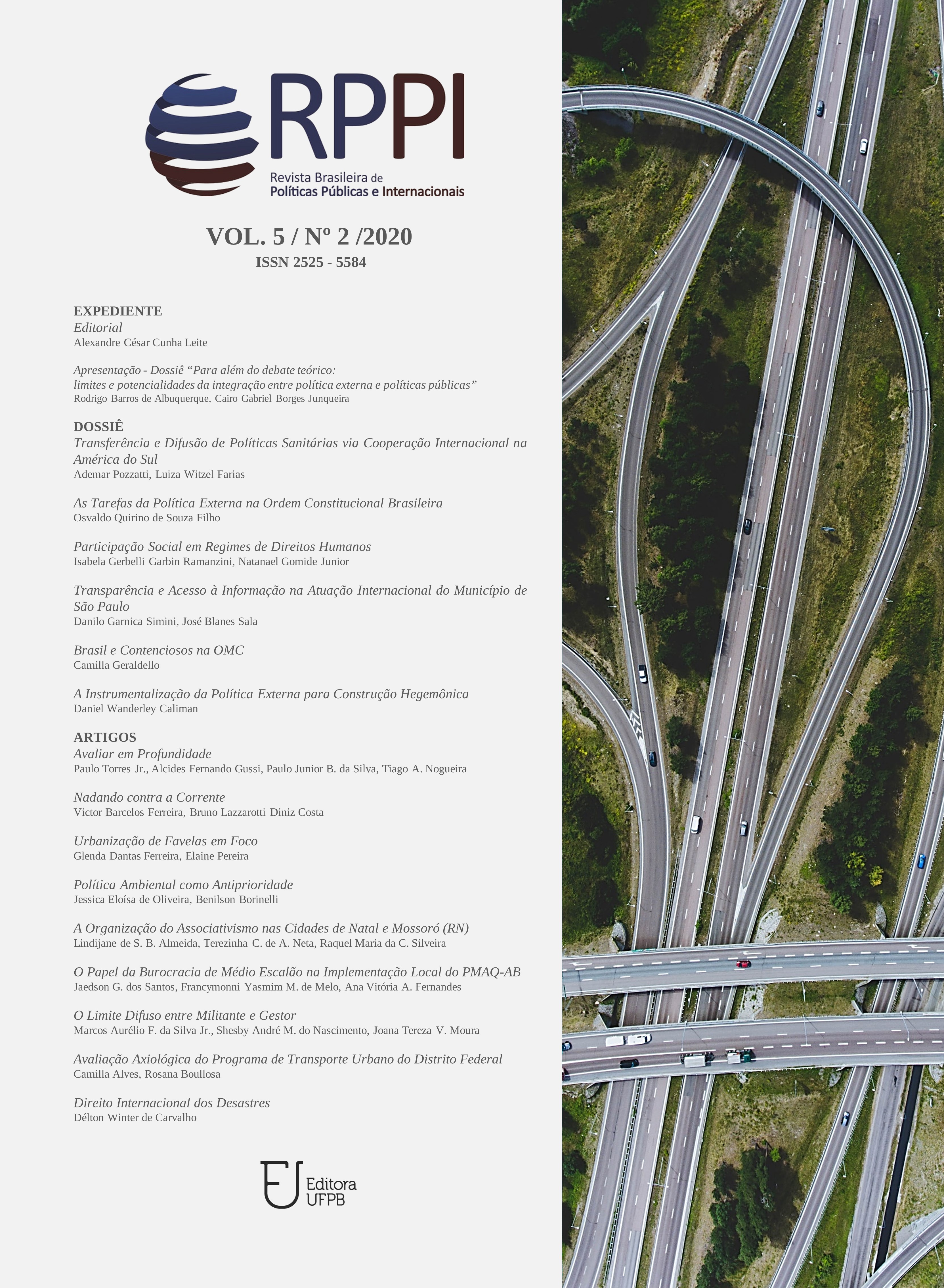The Diffuse Limit between Militant and Manager
A Study on Institutional Activism in the Government of Rio Grande do Norte, Brazil
DOI:
https://doi.org/10.22478/ufpb.2525-5584.2020v5n2.51095Keywords:
ativismo institucional, movimentos sociais, políticas públicas, EstadoAbstract
This main objective of this article is to understand the process of the entrance of militants in the state bureaucratic field, in the Rio Grande do Norte government, in 2019. Through ten interviews with militants who took up positions in the Secretariat of State for Women, Youth, Racial Equality and Human Rights (SEMJIDH), we seek to trace their trajectories to understand the forms of recruitment undertaken by the Government. In addition, we seek to make an analysis of the speeches about the entry process, the challenges posed and the tensions between being a militant and being a manager. As other researches have already pointed out, PT governments choose people who have traffic in different types of activism (church, unions, student movement, among others). In our case, in particular, these institutional activists understand the role of militant, trying to separate it from the role of manager, but believe that they contribute significantly to public policies since they give greater legitimacy to the process of signaling the entry of specific themes in the public agenda.
Downloads
Downloads
Published
Issue
Section
License
Autores que publicam nesta revista concordam com os seguintes termos:- Autores mantém os direitos autorais e concedem à revista o direito de primeira publicação, com o trabalho simultaneamente licenciado sob a Licença Creative Commons Attribution que permite o compartilhamento do trabalho com reconhecimento da autoria e publicação inicial nesta revista.
- Autores têm autorização para assumir contratos adicionais separadamente, para distribuição não-exclusiva da versão do trabalho publicada nesta revista (ex.: publicar em repositório institucional ou como capítulo de livro), com reconhecimento de autoria e publicação inicial nesta revista.
- Autores têm permissão e são estimulados a publicar e distribuir seu trabalho online (ex.: em repositórios institucionais ou na sua página pessoal) a qualquer ponto antes ou durante o processo editorial, já que isso pode gerar alterações produtivas, bem como aumentar o impacto e a citação do trabalho publicado (Veja O Efeito do Acesso Livre).




_.jpg)






.png)


.jpg)
_.png)
